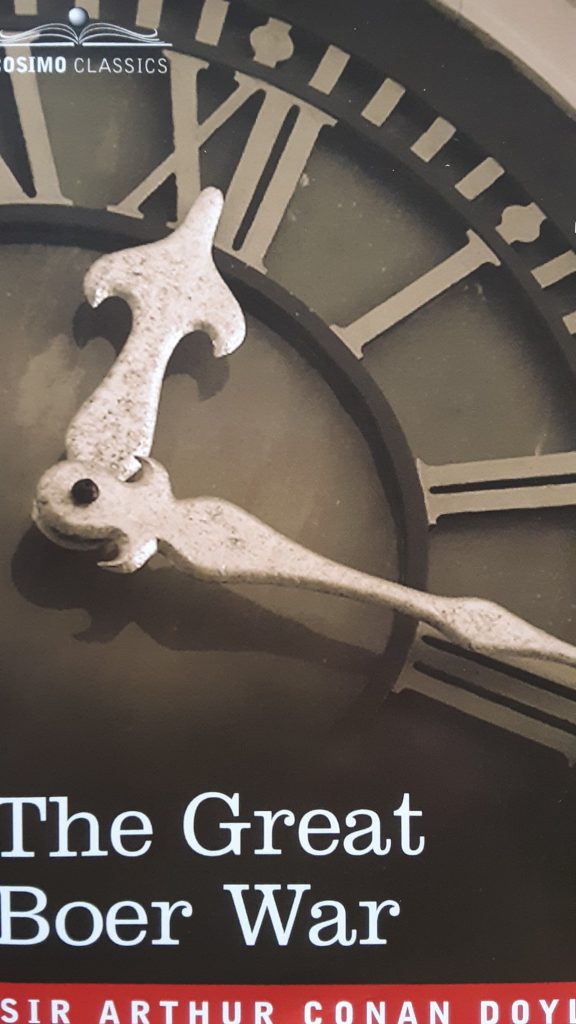By Sir Arthur Conan Doyle

A Boer in Afrikaans is a farmer. This is a collection of war correspondence penned by the author of Sherlock Holmes detailing the British war against the Dutch speaking republics of South African spanning the years 1899 to 1902. The war is notable as a precursor to World Wars which started only 12 years later. The Anglo Boer war involved both trench warfare and the use of concentration camps by the British to remove people from the lands of the two republics, The Orange Free State and the Transvaal.
It is also notable for a few of it’s famous participants. Winston Churchill was a fellow war correspondent, Mahatma Gandhi created the Natal Indian Ambulance Corps, and obviously Doyle reported.
The collection is a great resource for any who want to know which regiments served, and in which battles as well as how many dead, wounded, and captured there were. It details what led to the conflict, the posturing and gearing up for war, the preemptive attack and siege by the Boer republics on Ladysmith, the invasion of the republics, the guerilla actions in the Cape Colony, the final clearing of the land and the peace agreement.
The victor gets to write the history of any conflict, right? While at times Doyle writes with respect and admiration about the Afrikaner opposition, their courage, their stealth, their marksmanship, and their horsemanship, he positively gloats about the fairness, and righteousness of the British Empire, especially toward the rights of the ‘native’ population. While it is true that at this time Britain had banned slavery in it’s colonies, the Afrikaners had not and their cruelty to slave and servant is well documented; it cannot be denied that the British empire had built its wealth on the subjugation of foreign lands and people throughout the world.
While talking of the sanctimoniousness of the Empire on numerous occasions, he also goes on to refer to the natives as ‘savage.’ He calls the first humans known to inhabit the land then being fought over and which we now call South Africa, “dwarf bushmen, the hideous aborigines, lowest of the human race.” It is also important to note, when thinking about the cause of the war, that the poor and sparsely populated republics had recently happened upon huge gold reserves and didn’t have the manpower to mine it themselves. Needless to say the causes of war are often not as simple as good versus evil.
All criticism aside, it is technically exhaustive and should be a part of the answer to any questions about this conflict, the British Empire, the trajectory of South Africa, and the roots of the apartheid system. A great resource for balance and perspective is Deneys Reitz’s account in Commando, where he discusses among other things, the execution of Boer fighters for wearing British uniforms at a time when they struggled to clothe and shoe themselves. Neither account makes makes much reference to the effects on the majority of people, who happen to be black and for whom Doyle claims the war to have been fought. I would also recommend Frontiers by Noel Mostert for early history of South Africa, it’s many peoples, and the plight of the Xhosa.